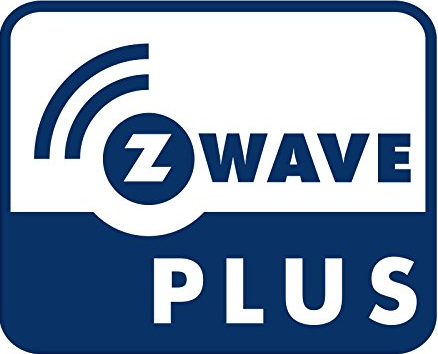
Ecolink Intelligent Technology
Z-Wave Plus Smart Switch - SingleToggle
SKU: STLS2-ZWAVE5

Quickstart
This is a
The Z-Wave Plus Smart Switch must be added to a Z-Wave Plus network prior to use. To include the device in a network both the device and the network controller must be in inclusion mode at the same time. Refer to the instructions provided by the manufacturer of your specific controller for details on initiating the controllers inclusion mode. 1)Verify that the Z-Wave Plus controller you are using is compatible with the Z-Wave Plus Smart Switch.2)Put your Z-Wave Plus Controller into add (inclusion) mode.3)Press the inclusion / exclusion button on the Z-Wave Plus Smart Switch.4)The LED on the front of the unit will turn off if network inclusion is successful.
Important safety information
Please read this manual carefully. Failure to follow the recommendations in this manual may be dangerous or may violate the law. The manufacturer, importer, distributor and seller shall not be liable for any loss or damage resulting from failure to comply with the instructions in this manual or any other material. Use this equipment only for its intended purpose. Follow the disposal instructions. Do not dispose of electronic equipment or batteries in a fire or near open heat sources.What is Z-Wave?
Z-Wave is the international wireless protocol for communication in the Smart Home. This device is suited for use in the region mentioned in the Quickstart section.
Z-Wave ensures a reliable communication by reconfirming every message (two-way communication) and every mains powered node can act as a repeater for other nodes (meshed network) in case the receiver is not in direct wireless range of the transmitter.
This device and every other certified Z-Wave device can be used together with any other certified Z-Wave device regardless of brand and origin as long as both are suited for the same frequency range.
If a device supports secure communication it will communicate with other devices secure as long as this device provides the same or a higher level of security. Otherwise it will automatically turn into a lower level of security to maintain backward compatibility.
For more information about Z-Wave technology, devices, white papers etc. please refer to www.z-wave.info.
Product Description
Product Overview Easily automate overhead lights, table lamps or other accessories with the Ecolink Z-Wave Plus Smart Switch. Simple to install in minutes by removing existing switch plate and installing this on the switch. No need to touch any electrical wiring. FeaturesQuick installation, no need to access high voltage wiresCompatible with all Z-wave certified hubs & controllersPreserves manual control of switchSenses current status of switchWorks with single gang toggle type switches
Prepare for Installation / Reset
Please read the user manual before installing the product.
In order to include (add) a Z-Wave device to a network it must be in factory default state. Please make sure to reset the device into factory default. You can do this by performing an Exclusion operation as described below in the manual. Every Z-Wave controller is able to perform this operation however it is recommended to use the primary controller of the previous network to make sure the very device is excluded properly from this network.
Reset to factory default
This device also allows to be reset without any involvement of a Z-Wave controller. This procedure should only be used when the primary controller is inoperable.
The Z-Wave Plus device is automatically factory defaulted when removed from a Z-Wave Plus network. Please use this procedure only when the network primary controller is missing or otherwise inoperable.
Inclusion/Exclusion
On factory default the device does not belong to any Z-Wave network. The device needs to be added to an existing wireless network to communicate with the devices of this network. This process is called Inclusion.
Devices can also be removed from a network. This process is called Exclusion. Both processes are initiated by the primary controller of the Z-Wave network. This controller is turned into exclusion respective inclusion mode. Inclusion and Exclusion is then performed doing a special manual action right on the device.
Inclusion
The Z-Wave Plus Smart Switch must be added to a Z-Wave Plus network prior to use. To include the device in a network both the device and the network controller must be in inclusion mode at the same time. Refer to the instructions provided by the manufacturer of your specific controller for details on initiating the controllers inclusion mode. 1)Verify that the Z-Wave Plus controller you are using is compatible with the Z-Wave Plus Smart Switch.2)Put your Z-Wave Plus Controller into add (inclusion) mode.3)Press the inclusion / exclusion button on the Z-Wave Plus Smart Switch.4)The LED on the front of the unit will turn off if network inclusion is successful.Exclusion
1)Any Z-Wave Plus Device can be removed from any Z-Wave Plus controller. Follow the directions to put your Z-Wave Plus Controller into exclusion mode.2)Press the inclusion / exclusion button on the Z-Wave Plus Smart Switch.3)The LED in front of the unit will blink steadily if the network exclusion is successful.Quick trouble shooting
Here are a few hints for network installation if things dont work as expected.
- Make sure a device is in factory reset state before including. In doubt exclude before include.
- If inclusion still fails, check if both devices use the same frequency.
- Remove all dead devices from associations. Otherwise you will see severe delays.
- Never use sleeping battery devices without a central controller.
- Dont poll FLIRS devices.
- Make sure to have enough mains powered device to benefit from the meshing
Association - one device controls an other device
Z-Wave devices control other Z-Wave devices. The relationship between one device controlling another device is called association. In order to control a different device, the controlling device needs to maintain a list of devices that will receive controlling commands. These lists are called association groups and they are always related to certain events (e.g. button pressed, sensor triggers, ...). In case the event happens all devices stored in the respective association group will receive the same wireless command wireless command, typically a 'Basic Set' Command.
Association Groups:
| Group Number | Maximum Nodes | Description |
|---|---|---|
| 1 | 1 | Group one is the lifeline group. The Light Switch will send Switch Binary Reports with a value of 0x00 if the light is turned off and 0xFF if the light is turned on to all nodes in group 2. |
| 2 | 1 | Group twoThe light switch will send basic reports with a value of 0x00 if the light is turned off and 0xFF if the light is turned on to all nodes in group 2. |
Technical Data
| Hardware Platform | ZM5202 |
| Device Type | On/Off Power Switch |
| Network Operation | Listening Sleeping Slave |
| Firmware Version | HW: 255 FW: 10.01 |
| Z-Wave Version | 6.51.09 |
| Certification ID | ZC10-18026031 |
| Z-Wave Product Id | 0x014A.0x0006.0x0006 |
| Color | White |
| Sensors | Open/Closed (Binary) |
| Switch Type | Toggle |
| Frequency | XXfrequency |
| Maximum transmission power | XXantenna |
Supported Command Classes
- Association Grp Info
- Association V2
- Basic
- Battery
- Manufacturer Specific
- Powerlevel
- Switch Binary
- Version V2
- Zwaveplus Info V2
Explanation of Z-Wave specific terms
- Controller — is a Z-Wave device with capabilities to manage the network. Controllers are typically Gateways,Remote Controls or battery operated wall controllers.
- Slave — is a Z-Wave device without capabilities to manage the network. Slaves can be sensors, actuators and even remote controls.
- Primary Controller — is the central organizer of the network. It must be a controller. There can be only one primary controller in a Z-Wave network.
- Inclusion — is the process of adding new Z-Wave devices into a network.
- Exclusion — is the process of removing Z-Wave devices from the network.
- Association — is a control relationship between a controlling device and a controlled device.
- Wakeup Notification — is a special wireless message issued by a Z-Wave device to announces that is able to communicate.
- Node Information Frame — is a special wireless message issued by a Z-Wave device to announce its capabilities and functions.